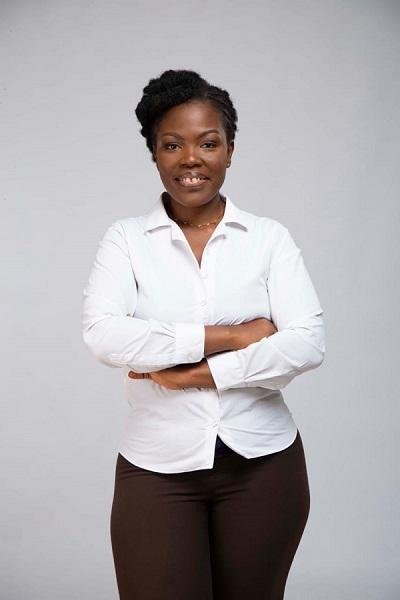Gender
More women to become players in energy sector

DMWA Resources, a Pan-African energy marketing and investment holding organisation, has endorsed the gender equity campaign, ‘Equal by 30’, which aims to encourage women in the clean energy sector to access equal pay, equal leadership and equal opportunities.
Alongside six partner organisations, DMWA has joined the campaign to increase the total number of signatories to 144, including 118 organisations, 13 partners and 13 governments.
The organisation said it wants to encourage its clients and partners to “have a strong inclusive agenda, which will facilitate women’s involvement in the energy industry”.
According to the Peterson Institute for International Economics, increasing the number of women in leadership positions from 0 to 30 per cent translates to a 15 per cent boost in profits.
A study, conducted in 2015 by the McKinsey Global Institute, emphasised the essence of taking steps to advance greater equality for women, such as employing more women in technology and boosting women’s participation in the workforce.
It noted that the world could add $12 trillion to its economy by 2026, hence the need for public, private, and social sectors to close gender gaps in work and society.
Sebastian Wagner, Managing Partner at DMWA Resources described the move as “a unique position to bring women on board decisively, as investors or creators of opportunities to invest in”.
“We’re really proud to become signatory today and firmly believe that any sound investment must be one that has women on board.
“Our core focus is on creating long-term value to benefit ourselves, our partners, host countries and their citizens. We are certain that this cannot be achieved without women’s participation,” he added.
Endorsement of the ‘Equal by 30’ campaign implies DMWA Resources is committed to offering a safe, transparent, respectful and inclusive work environment and attractive opportunities for development for all its staff, including women.
The organisation said it would “provide training opportunities to all employees to avoid toxic or misogynistic working environments, so that its workplaces are free of harassment, violence and bullying behaviours”.
Among several other commitments, the energy marketing company added that it would attract women in all departments and aim for approximately 50 per cent representation of women across all levels, including leadership teams and at board level, by the year 2030.
“We commit to providing career progression opportunities as well as backing investments led by women and which will encourage women’s participation in the energy industry,” the company noted.
The ‘Equal by 30’ campaign is a joint initiative of the Clean Energy, Education and Empowerment Initiative which works to advance the participation of women in the clean energy transition and to close the gender gap.
‘Equal by 30’ is led and based at Natural Resources Canada, a division of the Government of Canada.
By Gender desk
Gender
Awareness: First weapon against breast cancer

October is globally observed as Breast Cancer Awareness Month -a period dedicated to raising awareness, honouring millions of lives touched by the disease, and reaffirming the worldwide commitment to equitable access to care and improved survival for all.
This annual observance, marked in countries across the globe, serves as a rallying point to increase attention and support for early diagnosis, treatment, and survivorship. The 2025 theme, “Every story is unique, every journey matters,” places a spotlight on the deeply personal experiences of breast cancer survivors and patients. It underscores the diversity of their struggles while reinforcing the urgent need for compassionate, timely, and quality care regardless of geography, income, or background.
Behind every diagnosis lies not only a medical condition but also a story-one filled with courage, resilience, and hope. These stories extend beyond individuals, shaping the experiences of their families, friends, and entire communities.
Breast cancer continues to be the most diagnosed cancer among women worldwide. According to the World Health Organisation (WHO), approximately 2.3 million women were diagnosed in 2022, and about 670,000 died from the disease.
“These are not just numbers but mothers, sisters, daughters, and friends who deserve hope and dignity,” the WHO emphasises.
Survival rates, however, differ starkly across regions. While the five-year survival rate exceeds 90 per cent in high-income countries, it drops to 66 per cent in India and 40 per cent in South Africa. The reasons are clear: unequal access to early detection, timely diagnosis, and effective treatment.
If current trends remain unchecked, both incidence and mortality are projected to rise by 40 per cent by 2050. To address this, the WHO established the Global Breast Cancer Initiative in 2021, working with partners to strengthen health systems and reduce preventable deaths worldwide.
The situation in Ghana
In Ghana, breast cancer poses a particularly pressing public health concern. It is the most common cancer among women, accounting for about 15 per cent of all malignancies.
Studies reveal a troubling trend: almost 70 per cent of women are diagnosed at advanced stages, where treatment options are limited and survival rates much lower. In 2012, nearly half of Ghanaian women diagnosed with breast cancer lost their lives to the disease.
These statistics point to late presentation, cultural stigma, and limited access to screening facilities as some of the key factors fuelling high mortality.
Experts warn that unless more women come forward for early screening and timely treatment, these figures may remain stubbornly high.
Executive Secretary of the Breast Cancer Society of Ghana (BCSG), Mrs Georgina Kumah-Dzagah, said the numbers are not just statistics, they represent lived experiences. A survivor herself, she knows first-hand the difference early detection and treatment can make.
“My journey could have ended differently if I had ignored the early signs,” she reflected. “That is why the theme ‘Catch it early, treat it right, survive it’ is not just a slogan to me. It is a lifeline that can save countless women.”
Mrs Kumah-Dzagah believes awareness is the first weapon in the fight. She stresses that women must be proactive, know their bodies, and act quickly when something feels unusual.
“A lump, nipple discharge, or changes in the skin should never be ignored or treated with fear and silence,” she explained. “Hospitals and screening centres are there to help us, not to harm us. Early detection gives the best chance for a cure.”
The Executive Secretary also raised concern about the role of misinformation and reliance on untested remedies saying, too often, delays and misplaced trust in alternative cures cost lives.
“Treating it right means trusting science and trained professionals,” she stressed. “Modern treatment -whether surgery, chemotherapy, radiotherapy, or hormone therapy -may be tough, but it saves lives. I went through these treatments myself, and though the journey was not easy, I am living proof that treatment works when given at the right time.”
Her message resonates strongly in a society where cultural beliefs sometimes discourage women from seeking hospital care, and myths about breast cancer fuel stigma.
For Mrs Kumah-Dzagah, survival is not simply about conquering the disease. It is also about reclaiming life, hope, and purpose.
“Breast cancer is not a death sentence,” she affirmed. “Survivorship comes with challenges, but it also brings strength. Today, I speak not just for myself but for every woman still in the fight.”
A call for collective action
Mrs Kumah-Dzagah believes that breaking the silence and stigma around breast health is critical. She called on women, families, and communities to support open conversations and proactive health checks.
She said “let us be bold to check, quick to act, and committed to supporting each other. If we catch it early and treat it right, we will surely survive it.”
She said, BCSG continues to lead nationwide campaigns to create awareness, encourage screening, and support patients and survivors.
Through advocacy and education, the organisation, she said reminds women that vigilance, timely treatment, and community support can turn the tide against breast cancer.
By Esinam Jemima Kuatsinu
Join our WhatsApp Channel now!
https://whatsapp.com/channel/0029VbBElzjInlqHhl1aTU27
Gender
Trained but jobless …the human cost of Ghana’s skills mismatch

ALONG the busy corridors of the George Walker Bush highway, in Accra, 26-year old Nana Akua Afriyie arranges her beautiful sewn African print dresses on mannequins in front of her shop, hoping to attract buyers.
She trained in fashion design at a Technical and Vocational Education and Training (TVET) school in the Ashanti Region and graduated with high expectations. But three years on, she admits the journey has been tough.
“Everywhere I go, they tell me the same thing -they already have enough fashion designers,” Akua said with a wry smile.
“I wish I had studied something like agro-processing or Information Communication Technology (ICT), because that is where the jobs seem to be.”
Her story is not unique. Across Ghana, TVET graduates are struggling to find work, even as employers complain about difficulties in hiring people with the right skills.
This paradox lies at the heart of a new study commissioned by United Nations Children’s Fund (UNICEF) Ghana in partnership with the Government of Ghana, which has revealed deep structural gaps in the TVET system.
Oversupply and
shortages
The study, conducted across 57 pre-tertiary public and private TVET institutions, found a sharp mismatch between the skills offered in schools and the skills demanded on the labour market.
Only one out of the 57 schools offers training in agriculture which is a dominant driver of Ghana economy. This is despite employers reporting a rising need for skilled workers in agro-processing and agricultural technology.
The situation in ICT is only slightly better. Although the digital economy is growing rapidly, just four TVET institutions provide ICT-related training.
By contrast, trades like fashion design and garment-making are oversupplied. Almost every TVET institution offers them, leading to a glut of graduates competing in a saturated field.
Kwame Bediako, who runs a medium-sized agro-processing company in Ejisu, says the imbalance is hurting businesses. “We need young people who understand modern farming, post-harvest handling, and agro-processing.
But the schools are not training them. Instead, every year, we see hundreds of fashion and hairdressing graduates with no jobs waiting for them,” he told this paper.
Employment gap
Beyond the mismatch of trades, the study also uncovered a “perception gap” between employers and graduates.
Employers surveyed consistently reported that TVET graduates lacked adequate practical exposure and soft skills such as teamwork, communication, and problem-solving. Yet when students were interviewed, many expressed confidence in their preparedness for the job market.
“It’s like we are speaking two different languages,” said a construction contractor in Kumasi who took part in the survey.
“We advertise for masons or welders, and applicants come with certificates but cannot deliver basic tasks on-site. Meanwhile, they believe they are fully qualified. It is frustrating for everyone.”
This gap highlights a deeper issue: the way TVET outcomes are measured.
While many institutions prioritise exams and certification, employers value real-world performance, adaptability, and reliability – qualities directly tied to the targets of Sustainable Development Goal (SDG) eight which seeks to achieve decent work and economic growth.
Infrastructure
under strain
The introduction of free TVET education in Ghana has been hailed as a bold step to expand access and empower more young people with employable skills. But the surge in enrollment has placed immense pressure on schools.
Workshops, classrooms, and training equipment are overstretched, making it difficult for instructors to deliver effective Competency-Based Training (CBT) – a method designed to give students practical, hands-on skills.
At one TVET school visited during the study, a single welding machine was being shared by more than 30 students, drastically limiting practice time.
“We are trying, but the resources are just not enough,” admitted an instructor who asked not to be named.
Interestingly, the study noted that private TVET institutions recorded higher CBT accreditation levels than their public counterparts, but both sectors face similar challenges of inadequate infrastructure and outdated equipment – a challenge that reflects the urgency of SDG nine: Industry, Innovation, and Infrastructure.
Ghana’s demographic
dividend at risk
With a youthful population, Ghana is one of several African countries projected to benefit from a demographic dividend – the economic growth that can result when a large share of the population is of working age.
But UNICEF warns that this opportunity may slip away if young people are not adequately prepared for the job market. High unemployment, job insecurity, and limited opportunities are already major concerns.
“TVET is a powerful pathway to equip young people with relevant skills,” the report stated. “But unless curricula, training, and infrastructure are aligned with industry needs, Ghana risks losing the benefits of its demographic advantage – and missing its commitments under SDG four: Quality Education.”
Workplace experience:
A partial fix
One of the ways schools have tried to bridge the skills gap is through Workplace Experience Learning (WEL) – placing students in companies for internships or apprenticeships.
While many employers support this, some expressed concerns about the risks involved. “It is costly to supervise students who come for training, and sometimes they slow down productivity,” said an ICT firm manager in Kumasi. “But we do it because we know the system needs it.”
Recommendations
and the way forward
The study made several recommendations to address the skills mismatch. Its suggested curriculum alignment. It called on schools to update curricula to reflect the skills industries need, especially in agriculture, ICT, and construction.
Also UNICEF urged schools to inculcate soft skills in TVET training, infrastructure investment and build stronger partnerships.
UNICEF called for a collective effort involving government, private sector, development partners, and communities to ensure that TVET fulfils its role as a driver of sustainable economic growth.
For Akua, the fashion graduate, the lack of opportunities has been discouraging. Yet she remains hopeful. “If I had the chance to retrain in ICT or food processing, I would do it. I don’t want to just sit at home,” she said.
Her words echo the aspirations of thousands of Ghanaian youth – ambitious, energetic, and eager to contribute, but often trapped by systemic shortcomings in education and training.
By Esinam Jemima Kuatsinu
Join our WhatsApp Channel now!
https://whatsapp.com/channel/0029VbBElzjInlqHhl1aTU27






